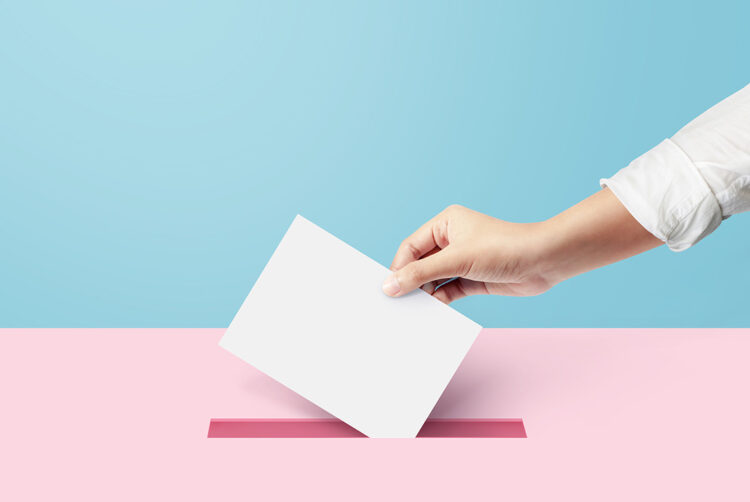Brace yourselves for the year of the TikTok election

Opinion
What can politicians learn from influencers about how to reach younger audiences in a big election year?
2024 is a massive year for politics. Not only do we have a UK general election likely scheduled for November, in the US Donald Trump is gearing up for a second shot at the presidency.
The focus of political campaigners on both sides of the Atlantic will be creating impact. If 2016 has taught us anything, the slightest percentage can shift the dial on a vote.
Enter social media, where adults spend nearly 151 minutes per day globally. Within this sits 1bn monthly active users of TikTok.
The rise of TikTok and the creator economy has revolutionised how we consume news and media. According to Ofcom, 71% of 16-24 year-olds and 66% of 24-34 year-olds get their news from social media.
Society is more polarised than ever after a series of crises including the global pandemic, the high cost of living and ongoing international conflicts. It’s no surprise that there will be a large emphasis on digital campaigns for the elections.
So, with TikTok’s dominance as a news source, what can politicians learn from influencers about how to reach younger audiences? Could 2024 be the year a TikTok-powered “youthquake” decides the election?
The rise of the ‘spinfluencer’
Despite a ban on political advertising, the potential for content creators to shape the political conversation on platforms like TikTok is unprecedented.
Viewers respond to content creators because they feel personal and authentic. They’re interested in creating a sense of community and, over time, a sense of trust is built. Social media algorithms favour this people-first content because viewers are less likely to swipe past.
In fact, our research with social agency Goat proves the effectiveness of influencers, with findings showing short-term return on investment 17% higher for influencer campaigns than the all-media average. What’s more, people watch 12 times more creator-led content than brand-led content.
When you apply these findings to the political world, you see why digital platforms are reshaping engagement, with many young people claiming to trust influencers more than politicians.
In 2019, Stormzy and KSI’s social media posts led to a surge in voter registrations from mainly under-35s, with 350,000 registrations in one day. In the US, K-pop fans on TikTok disrupted Trump’s 2020 rally by booking tickets en masse and not showing up.
This power of social media in mobilising the electorate has led to the rise of political influencers — or “spinfluencers”.
Cavendish Consulting has just published a new report on spinfluencers that shows there are over 200 powerful online political influencers in the UK. Creators like Owen Jones and Darren Grimes have used their platforms to build followers, critique policies from the government and advocate for change.
In the US, Saint Hoax is an artist and satirist who blends pop culture references with political activism for their 3.4m followers. And then there are meme accounts like @PoliticsMoments catering to a younger audience more likely to engage with visual and humorous content.
By disseminating political information through direct address, humour and visual content, these creators break down barriers to understanding complex issues and make politics more accessible to a younger audience.
The message for brands and political campaigners is clear: influencers are a media channel in their own right and are a crucial strategy to ensure broader reach. Not only will they help messaging travel further, they do it in a way that resonates more strongly with their audiences.
Responsibility of brands
While their influence can be massive, not every spinfluencer is a reputable journalist and we need to think about the spread of misinformation. Many are pushing their own political agenda and are often unregulated.
As TikTok becomes more popular for news consumption, the ease with which media can be manipulated, coupled with the convincing nature of AI-generated content, poses a significant challenge. Content on TikTok spreads at an astonishing pace, driven by algorithms and user behaviour that favours virality. Once this type of “fake” content is released into the digital world, it becomes exceedingly difficult to control or retract.
Brands and politicians need to navigate the influencer landscape carefully, choosing content creators who align with their values and who commit to truth and transparency.
In 2024, social media and TikTok will play a crucial role in engaging young people politically. Influencers can have a decisive impact and should be considered for any brand’s media manifesto.
Whether for better or worse, this year will be known as the year of the “TikTok election”.
 Lucy McMullin is strategy partner at EssenceMediacom
Lucy McMullin is strategy partner at EssenceMediacom




